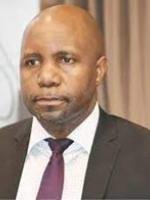Africa is increasingly adopting nature-based solutions (NbS) as a cornerstone in its fight against climate change.
This strategic pivot will take center stage at the Second Africa Climate Summit, scheduled for September 8–10, 2025, in Addis Ababa, Ethiopia, according to Harsen Nyambe, Director of Sustainable Environment and Blue Economy at the African Union Commission.
While the inaugural summit focused on overhauling global financial systems, securing greater funding for Africa, and emphasizing the continent’s role in green mineral supply chains, the 2025 summit will highlight NbS as Africa’s distinctive pathway to climate resilience.
“As a continent, we believe we have much to contribute, especially in the bioeconomy,” Nyambe noted. “This summit will showcase Africa’s best practices in leveraging natural ecosystems to both mitigate and adapt to climate impacts.”
Nature-based solutions involve the protection, restoration, and sustainable management of ecosystems such as forests, wetlands, coastal areas, and arable land. These approaches provide numerous benefits, including carbon sequestration, disaster risk reduction, enhanced biodiversity, improved air and water quality, increased resilience to climate threats, and support for community livelihoods.
Nyambe underscored the importance of sustainable financing to scale up these interventions. “We must invest in nature to continue reaping the benefits ecosystems provide. Securing financing is essential to keep these solutions viable and effective.”
Despite Africa’s acute vulnerability to climate shocks, access to climate finance remains a significant hurdle for many countries. Positive developments, however, are emerging. Nyambe revealed that 15 African Union member states have recently secured funding from the Green Climate Fund, aided by technical assistance and project development training from the AU Commission.
“We’ve been actively training member states to craft strong project proposals and unlock climate finance,” Nyambe said. “We are also preparing countries to tap into carbon markets, opening new avenues for sustainable funding.”
At the ClimSA-SEWA forum in Windhoek, Namibia, Nyambe introduced the African Union Commission’s Multi-Hazard Early Warning Program, which has established situation rooms at the AU headquarters, within Regional Economic Communities, and at national levels across member states.
However, many African countries continue to face significant challenges in implementing climate and disaster management policies, including limited funding, a shortage of skilled professionals, inadequate infrastructure and emergency equipment, and weak communication systems.
To address these gaps, Nyambe advocates for incorporating disaster risk reduction education into school curricula across Africa, emphasizing the value of early awareness. “We need to teach people how to respond to disasters, whether it’s an earthquake or a flood. Education is key,” he stated. “At present, what’s missing are robust awareness campaigns.”
As Africa prepares for the forthcoming climate summit, the message is clear: nature is not merely a casualty of climate change,it is also an essential part of the solution.



